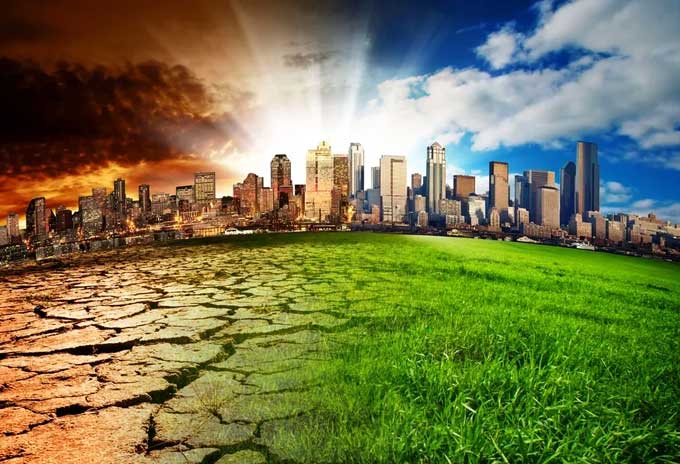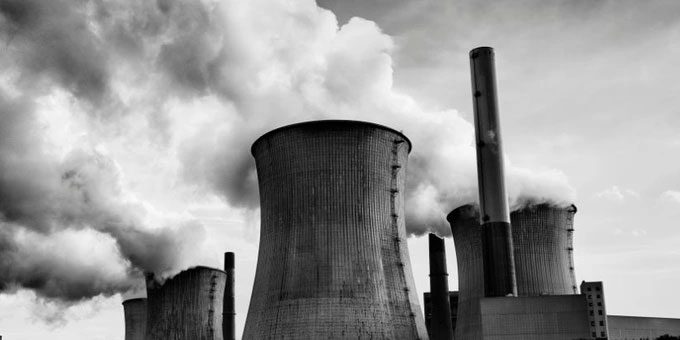Climate change is a critical and serious issue facing the Earth. Scientific studies indicate that climate change is largely driven by human activities, particularly the increase in emissions, waste, and CO2 levels. Experts have warned that without immediate action to reduce emissions and CO2, the climate will continue to change, leading to adverse effects on the environment and human health.
The “Prophecies” Hidden for Decades by ExxonMobil

The severity of climate change has been predicted by scientists for decades (Image: Getty).
In 2015, major newspapers such as the Los Angeles Times and The Guardian revealed numerous internal documents from scientists at ExxonMobil—one of the world’s leading oil and gas companies.
The internal documents, deemed “shocking,” were kept secret for nearly five decades and detailed how fossil fuel products contribute to the global climate crisis.
Researchers at Harvard University were the first to conduct an examination and assess the outcomes of these documents.
They were astonished to find that ExxonMobil’s hidden predictions made from 1977 to 2003 had a remarkable accuracy rate of 93% regarding climate change impacts.
Accordingly, the anticipated rate of global warming was about 0.2 degrees Celsius per decade.
Given the rate of carbon emissions produced by humans, ExxonMobil scientists also predicted that the effects of the climate crisis would become increasingly evident by the early 21st century.
“Our findings demonstrate that ExxonMobil ‘knew something’ about global warming decades ago,” the authors of the study stated.
This data has since been continuously compared with 72 independent scientific reports, assessed at the national level from 1982 to 2013.
The Devastating Impact of Climate Change

The impact of climate change will become increasingly devastating.
According to a report released on September 13 by the World Meteorological Organization (WMO), humanity appears to be heading in the wrong direction, and the impacts of climate change will become increasingly severe.
Specifically, harmful emissions from fossil fuels continue to rise, surpassing pre-pandemic levels. Notably, the world has recorded the hottest average temperatures in the past seven years.
The WMO stated: “In the next five years, there will be at least one year with an average temperature that exceeds 1.5 degrees Celsius compared to the levels recorded from 1850 to 1900. This could happen at a rate of approximately 48%.“
This indicates a significant gap between the climate goals set by nations and the actual situation, raising concerns among experts about the socio-economic and human impacts.
Data measured by experts also shows that the levels of carbon dioxide, methane, and nitrogen oxide in the atmosphere continue to rise (despite a temporary decrease during the Covid-19 pandemic).

Levels of carbon dioxide, methane, and nitrogen oxide in the atmosphere continue to rise.
Notably, global CO2 emissions from January to May 2022 were 1.2% higher than the emissions recorded during the same period in 2019.
The report also emphasized that the ambition to reduce greenhouse gas emissions by nations by 2030 must be four times higher to limit warming to +2 degrees Celsius and seven times higher to meet the +1.5 degrees Celsius target set by the Paris Agreement.
Additionally, the number of weather-related disasters has increased fivefold over the past 50 years, causing damages amounting to $202 million per day.
According to the WMO, the world now needs to enhance measures for early warning systems regarding climate change to protect vulnerable populations in various nations.


















































